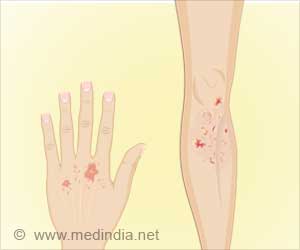Most young children have a natural tendency to be aggressive, a behaviour that parents should control in kids’ pre-school years if they don’t want their young ones to be violent
Most young children have a natural tendency to be aggressive, a behaviour that parents should control in kids’ pre-school years if they don’t want their young ones to be violent and antisocial later in life, an expert in childhood behaviour has warned. Professor Richard Tremblay, from the University of Montreal claims that toddlers are born with aggressive instincts rather than learning to be violent from their surroundings.
According to him, what they do have to learn, however, is how to control this innate behaviour in the critical years before they start with their school life. And here’s where he brings in the role of parents. Tremblay says that children reach their peak of aggressive behaviour between 18 and 42 months and if parents fail to mediate at this stage, it could make the difference between a child growing up normally or turning into a violent adult.He also warned that there is evidence that uncontrolled aggression in the first few years is associated with criminal and drug-taking behaviour as adults. "It is not only an indicator of aggression in adulthood but it also leads to other serious behavioural problems such as alcohol and drug abuse, violent crimes and continues the cycle of abusive parenting," the Daily Mail quoted him, as saying.
"Learning how not to be violent - which mostly takes place during the pre- school years - is dependent on both genetic and environmental factors,” he added. He also cited studies that have found a link between mothers who smoke during pregnancy, and children who never learn to control their natural aggression.
Various factors have been linked to childhood aggression, such as whether the parents are separated at the time of birth, low parental income, whether the mother has a history of antisocial behaviour and physical abuse within the family. Being able to identify the children most at risk could lead to better intervention and prevention, Tremblay said.
"Identifying the factors which stop children becoming well socialized adults should help us design preventative measures which are employed at the right time in a child's development,” he said. "These should put an appropriate emphasis on the behaviour of the parents, as well as that of the child,” he added.
However, other researchers disapprove of Tremblay and cautioned against taking a too simplistic view on aggression in children. "I don't think the quality of evidence is robust enough yet to be able to make sweeping generalizations,” Professor Donald Christie, of the University of Strathclyde, said.
Advertisement
LIN/V





